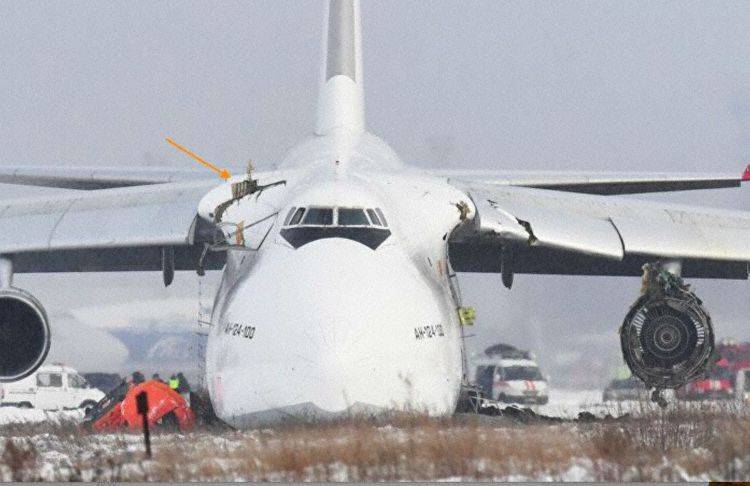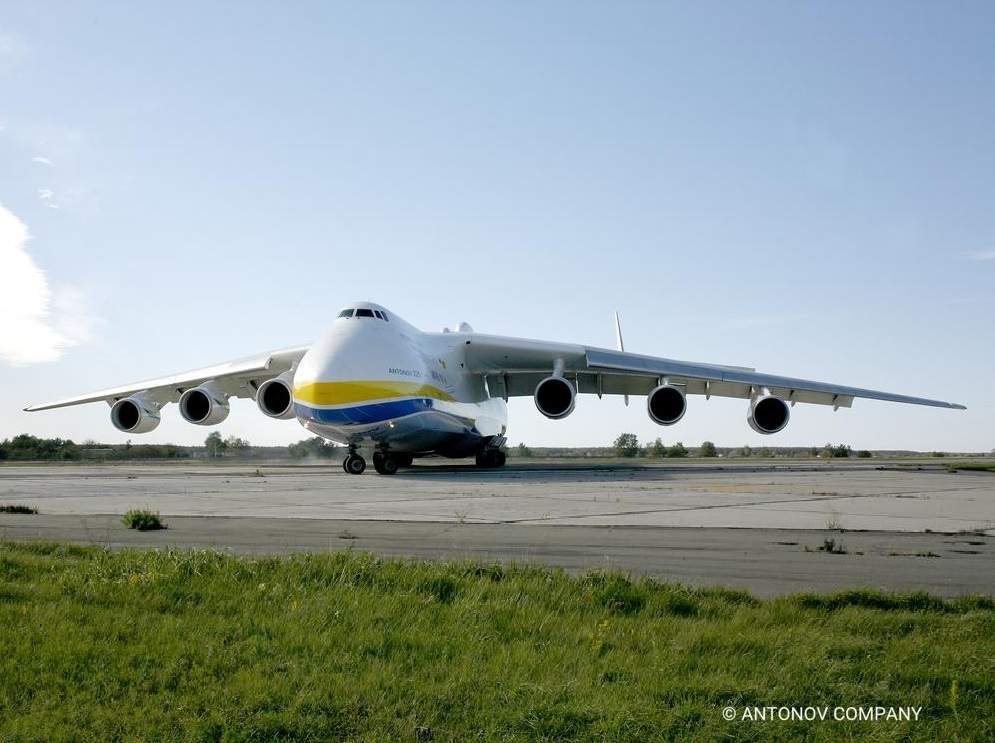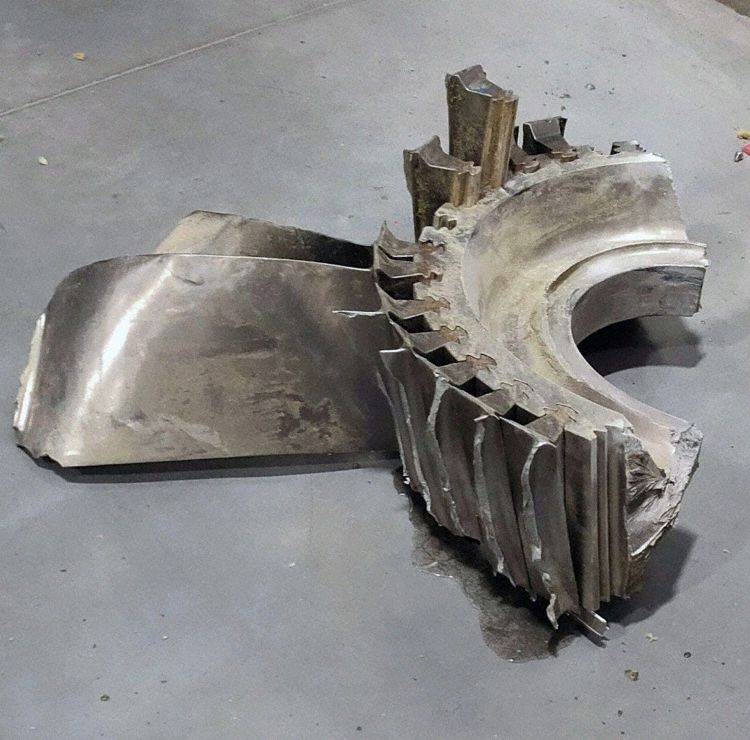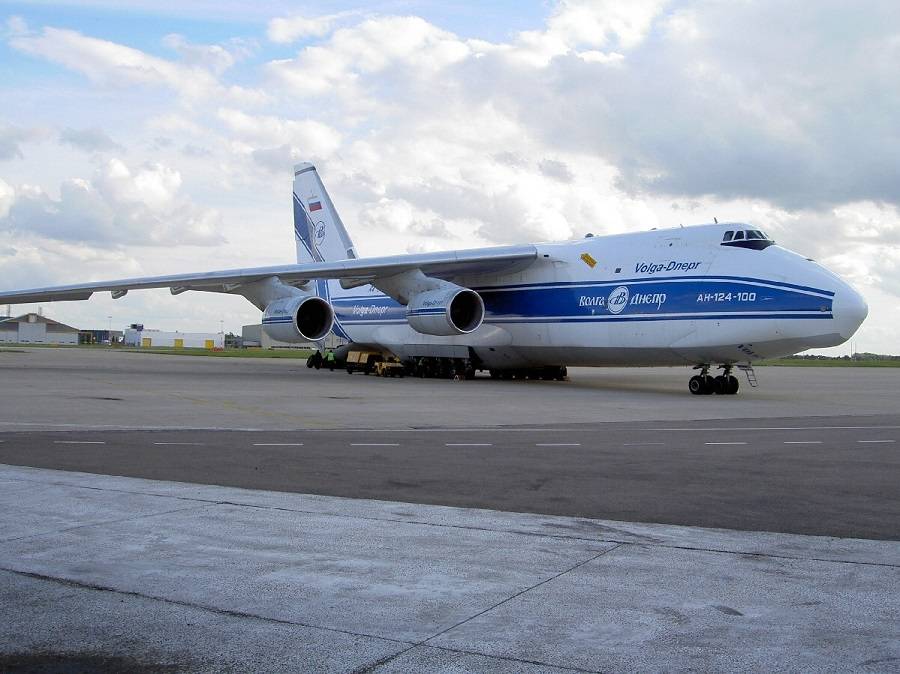Ukraine’s Aviation Authority issued a requirement, for D-18T engine inspections. These engines power the An-124 and An-225 aircraft.
On the 13th of November last year, an Antonov An-124 had to return for an immediate landing in Novosibirsk airport. The aircraft had experienced an uncontained failure shortly after take off. The rotor disk of its No2 D-18T engine failed, went through the cowling, through one side of the fuselage, out the other side, down through the roof of a warehouse and was found on the floor. We have more details of the accident here, and more in the aftermath – including some tanks.

About two weeks after the uncontained D-18T engine failure of the Volga-Dnepr An-124, there seemed to be more than one view, on how to deal with the situation. The airline’s management decided to ground its entire An-124 fleet. This was despite the almost unprecedented demand for cargo at the time. The An-124 aircraft may not be the most efficient freighters in the world, but they are some of the most versatile. Their front cargo door means that there are some jobs that only they can do.
Well – almost only they can do these jobs. Because the An-225 Mriya is the undisputed king of outsize cargo. And in the aftermath of the grounding of the Volga-Dnepr An-124s, Antonov (the airline) not only kept their own An-124s in service, they also decided to reactivate the An-225 as well. The two aircraft use the same engines. Given that it was one of these engines (Ivchenko Progress D-18T) that suffered the disk failure, this seemed strange.

The D-18T Engines
There is some cross-border politics in this story. Volga-Dnepr is a Russian company. Antonov (the aircraft manufacturer) and Antonov Airlines are Ukrainian. The Ivchenko Progress D-18T engine is a Ukrainian design. The company that maintains these engines is Motor Sich, in the Ukraine. In another recent story, Ukraine could nationalize this company, to avoid a takeover from a Chinese company. There clearly are some delicate balances to maintain in this matter.

Volga-Dnepr’s management played-down any political sides to the story. Konstantin Vekshin, Volga-Dnepr’s Chief Commercial Officer, even recommended that customers with cancelled oversize shipments speak to Antonov Airlines, Volga-Dnepr’s cargo rival. They, too, have Antonov An-124s, obviously with the same D-18T engines. Vekshin said:
“We are not concerned, politically. Public safety and airworthiness goes beyond politics. We need to work together to tackle this – the market needs it. The AN-124 offers a very important service.”
At the time, Antonov justified their actions, suggesting that the service and maintenance of their own engines met manufacturer’s requirements. Now, however, the Ukrainian authorities are calling for checks on these engines. This comes in an Airworthiness Directive (AD), that came with the preliminary report into this accident. The AD calls for a one-time inspection of the fan disk for all D-18T series 3 engines. The timing for these inspections is within six months of the AD, or when the engine reaches 250 hours.

Troubleshooting Big Planes
This latest development helps put the actions of Volga-Dnepr after the accident, into some perspective. The airline’s decision to ground its own fleet, before any aviation authority asked it to, seemed strange at the time (two weeks after the accident). It now looks like the airline realized that no decision to ground the planes or investigate the incident, was forthcoming. Another month or so later, it appears that the Russian authorities issued a Service Bulletin, calling for fan disk checks.

Volga-Dnepr then slowly returned their An-124 fleet to service, as they checked their stock of D-18T engines. The airline is now flying all but two of its jets, plus the one involved in the accident. However it’s worth noting that even before the accident, the airline typically had 1-2 jets down for maintenance. In all, it looks like the pre-emptive decision to ground the jets was a prudent one, until there was some common ground on what to do with the D-18T engines.
But this is not to say that Antonov Airlines was less prudent. They did prepare the world’s only An-225 for service back in December, as we reported. However, they didn’t actually fly it. The aircraft has been on the ground since last August, when it last flew PPE equipment.



